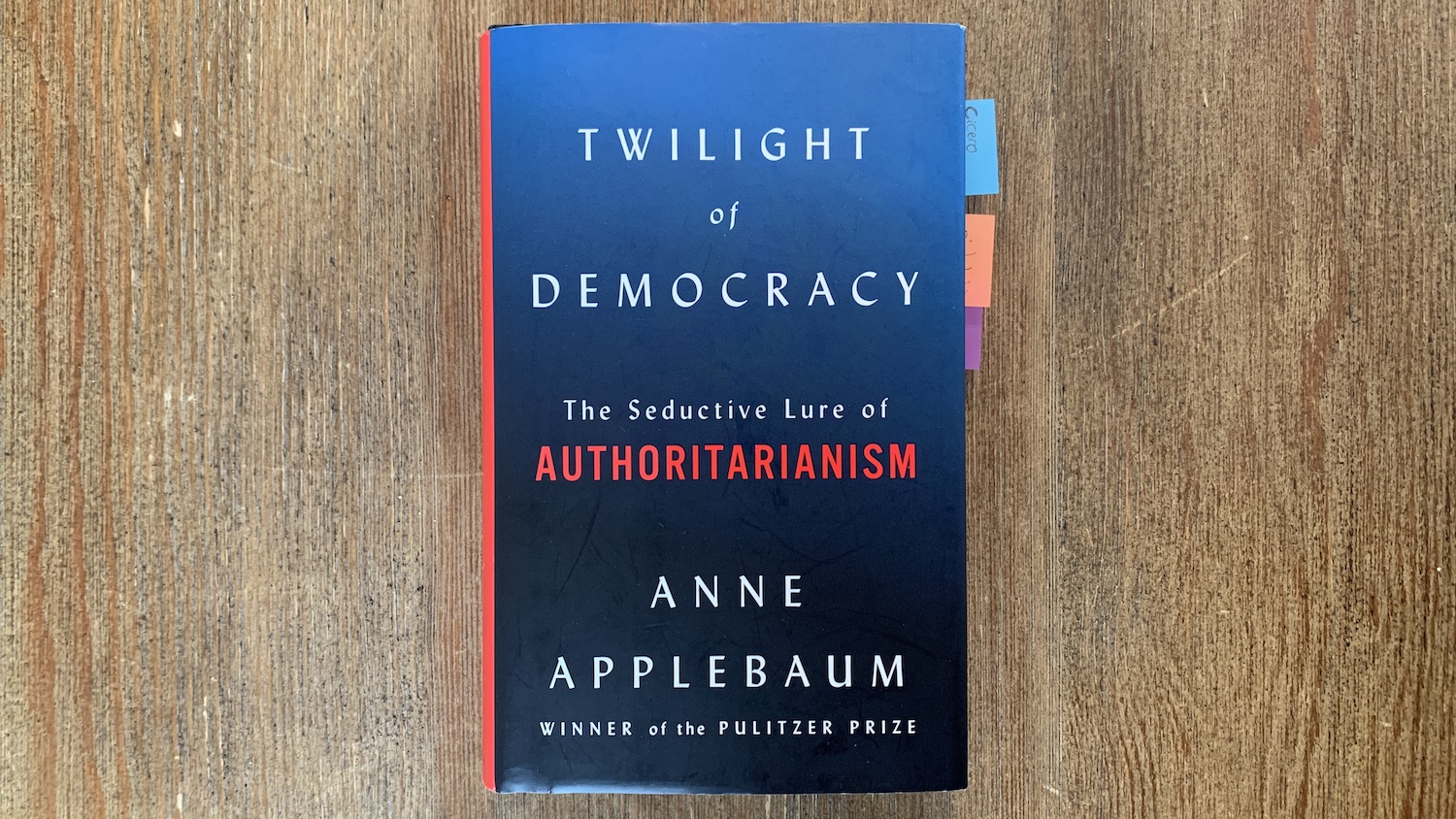
24 Nov Twilight of Democracy by Anne Applebaum | My Underlines
This was a different kind of book for me to read, one that is perhaps less academic and more politically biased. Twilight of Democracy takes the form of an extended ‘Op-ed’, attempting to persuade the reader of her views about our current political environment.
What interested me to read the book is the author’s political stance–she is quite conservative in her economic and political leanings and yet she is very concerned and critical with the present administrations social implications. This has been my position for some time, so I gave it a read.
As with anything that has strong political bias, I recommend reading it with a critical mind. Claim those things which are true and disregard those things which are misleading.
My Underlines
[My favorite quotes are emboldened and indented.]
Given the right conditions, any society can turn against democracy. p.15
Plato feared the “false and braggart words” of the demagogue, and suspected democracy might be nothing more than a staging point on the road to tyranny. P.15
The [the Founding Fathers] wanted to build democracy in America on the basis of rational debate, reason, and compromise. But they had no illusions about human nature; They knew that men could sometimes succumb to “passions,” to use their old-fashioned word. They knew that any political system built on logic and rationality was always at risk from an outburst of the irrational. p15
Karen Stenner, a behavioral economist…has argued that about a third of the population in any country has what she calls an authoritarian predisposition… p.16
Authoritarianism appeals, simply, to people who cannot tolerate complexity: there is nothing intrinsically “left-wing” or “right-wing” about that instinct at all. It is anti-pluralist. It is suspicious of people with different ideas. It is allergic to fierce debates…it is a frame of mind, not a set of ideas. P.18
The language used by the European radical right–the demand for “revolution” against “elites,” the dreams of “cleansing” violence and an apocalyptic cultural clash–is eerily similar to the language once used by the European radical left. The presence of dissatisfied, discontented intellectuals… p.58
The don’t want to act out roles from the past because it amuses them: they want to behave as they think their ancestors did, without irony. P.75
The noise of argument, the constant hum of disagreement–these can irritate people who prefer to live in a society tied together by a single narrative. p.109
The end of religious conflict was the beginning of other kinds of conflicts, between secular ideologies and national groups. P.111
People have always had different opinions. Now they have different facts. P.113
A generation of young people now treats elections as an opportunity to show their disdain for democracy by voting for people who don’t even pretend to have political views. p.115
For some people, loud advocacy of Trump helps to cover up the deep doubt and even shame they feel about their support for Trump. p. 171
Throughout history, pandemics have led to an expansion of the power of the state: at times when people fear death, they go along with measures that they believe, rightly or wrongly, will save them–even if that means a loss of freedom. P.185

No Comments